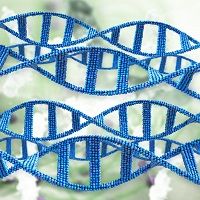Article
Low Back Pain, Depression, and Twins
Author(s):
The association between depression and low back pain may be explained, at least in part, by genetic factors affecting both conditions.

Study results published in the March 2015 issue of Pain indicate that the often observed association between depression and low back pain may be explained, at least in part, by genetic factors affecting both conditions. The international study was conducted by Marina B. Pinheiro, MSc, and colleagues at the University of Sydney in Australia and the Murcia Twin Registry in Spain.
The findings are the result of analyses ofcross-sectional data on nearly 2,150 Spanish twins, who provided a unique opportunity for the research team to explain the association between depression and low back pain by eliminating any contributing genetic and environmental factors. Previous research has consistently found a relationship between back pain and depression, but the nature of this association has not been well defined. The study by Pinheiro and colleagues is the first to examine the low back pain—depression link using twin data to control for genetic and familial factors.
For the current study, all twins answered questions regarding lifetime prevalence of low back pain and symptoms of depression. Answers to these questions were analyzed to determine whether participants with symptoms of depression had a higher prevalence of back pain than those without such symptoms. Associations were first investigated using logistic regression analysis of the total sample.
The authors write that they then “performed subsequent matched within-pair twin case-control analyses with all complete twin pairs discordant for LBP regardless of zygosity, and separately for dizygotic and monozygotic pairs. This sequential analysis allows for more precise estimates of the relationship between variables, as in each step, the impact of early shared environment and genetics is further considered.”
Initial analysis of the total sample, which considered the participants as individuals and not necessarily twins (thus not accounting for genetic and familial factors), found that those with symptoms of depression and anxiety had a 1.6 times higher odds of having low back pain, when compared with those without these symptoms.
The association was found to be stronger upon subsequent analysis of twin pairs, which controlled for any potentially influential genetic and familial factors; twins with symptoms of depression had a 1.7 times greater odds of having low back pain than those without these symptoms. The link grew even stronger following case-control analysis of dizygotic (non-identical) twins; those with symptoms of depression had a 2.39 times increased odds of low back pain.
However, when the analysis was conducted for monozygotic, or genetically identical, twins, the association between depression and low back pain “disappeared,” according to the study authors. The odds ratio for low back pain was 0.92 for those with symptoms of depression. Similar patterns were observed for state and trait depression. The authors wrote that this finding suggests that the “strong association found in non-identical twins resulted from the ‘confounding’ effects of common genetic factors influencing both conditions. For example, genes affecting levels of neurotransmitters such as serotonin and norepinephrine might affect the risk of both conditions.”
Pinheiro and colleagues note, however, that it still remains to be determined whether common genetic factors predispose people to the development of co-morbid depression and low back pain. The team suggests that additional studies that follow participants, preferable twins, over time may help confirm their findings, adding that further research into the link between back pain and depression is warranted.




